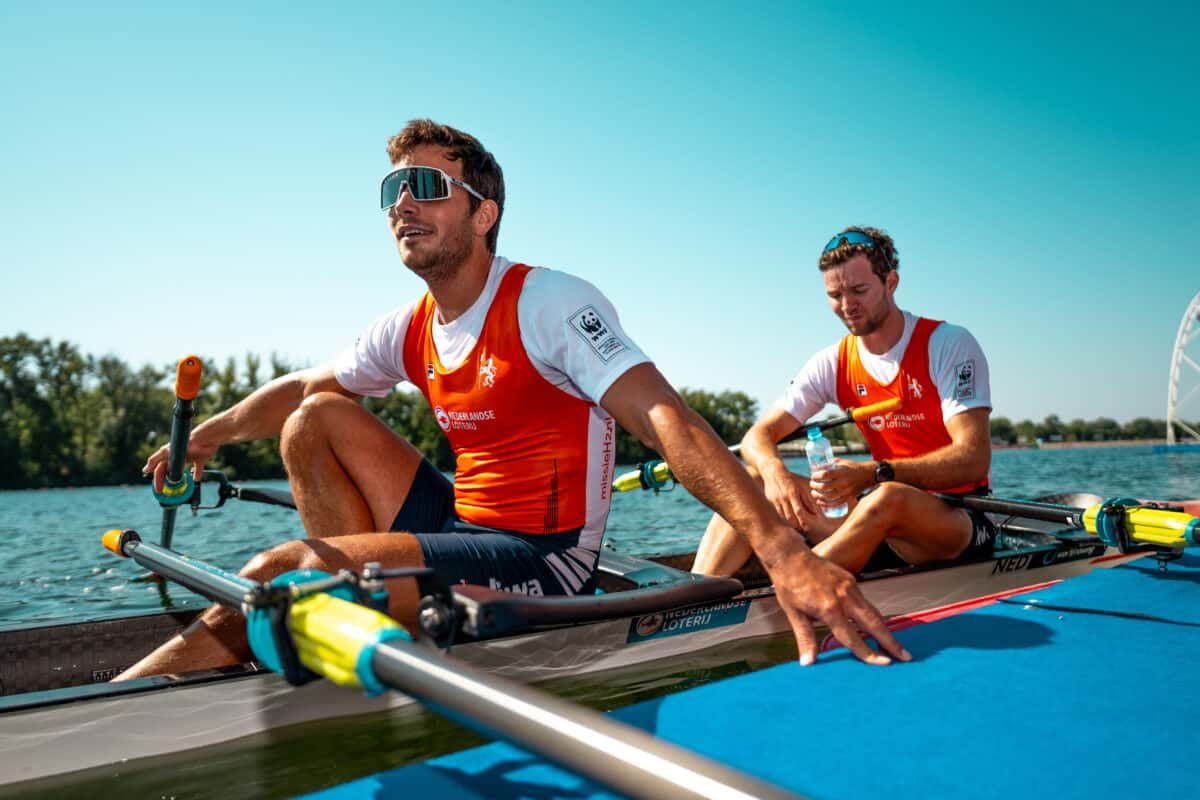
13 Jan 2024
Coaching a Rower's Mind
The Dutch National Rowing Team Men’s Sculling Coach, Francesco Fossi, has some firm ideas on coaching.
The recent recipient of the 2023 World Rowing Coach of the Year award, Fossi stepped into coaching just a short time after completing a distinguished rowing career which included competing at two Olympic Games and winning two World Championship medals, a European Champion title, two world Junior medals and three Under 23 medals.
Fossi says his expertise is focusing on the relationship between athlete and coach and he was drawn into coaching because of this human focus.
“I want to help the young guys and motivate them. It’s different from doing a normal job. You get to see these young athletes who are talented or not talented, but they’ve still got passion. We see, for example, students who have exams and other commitments, but they still come to training. It’s an inspiring environment and it keeps you sharp.”
Technique, says Fossi, is fundamental in coaching but for him his attention is on the mind and the athlete’s mindset.
“The mind is directing the body, so technique comes from your mindset,” says Fossi. “So, for instance, if you are relaxed, you row relaxed. You need a mindset environment approach to rowing.
“The right technique comes from the right mindset, the right work attitude and the ability to relax and save energy and not over-stress in the moment.
“I believe the mental side is the last step but the most important at top level. First you have to do the hours, do the work and gain good technical skills, but only than your mindset will allow you to deliver your best performance.
“So the approach in training is around how you react to the high stress levels of racing.”
As this can only be checked during racing, Fossi looks to see how athletes behave and deal with high stress.
“I have seen some incredibly strong athletes in training and testing, but I see their limitations in how to deal with the stress. They lose so much energy in certain situations, so they arrive at a race already to stressed or to tired so they can’t apply the right technique.”
He calls on his own experience as a junior rower at the World Rowing Junior Championships. “The day before the final I wanted to die. I had a very bad approach to racing.” Fossi learnt to turn this fear into hype – being hyped and happy.
Fossi sees building the right environment as key. “We try to put a lot of effort to make it a good environment that’s fair and transparent. I explain everything we’re doing and talk to them to get another point of view.”
He says you can change the mental side of an athlete but it takes a lot of time and effort and requires the right environment.
“Rowing requires a lot of trust between the athlete and the coach, so if you’re able to trust then you’ll be open to changing a behaviour. A coach has to discover and facilitate and for the athlete it has to come from the inside for them to change.”
Originally from Italy, Fossi draws on other sports in his coaching especially cycling in the cycling-mad Netherlands.
“I try to see boundaries of other sports and what we can apply to rowing physically. Also to arrange a good set up for race day. Cycling is a very important part and I also mix in knowledge from ice skating and swimming. The information flow between sports in the Netherlands is good. There aren’t big secrets between sports.”
This is Fossi’s first time taking athletes towards the Olympic Games and under Dutch head coach Eelco Meenhorst they are following a plan that began right after the Tokyo Olympics. This includes everyone working to a set timeline. This timeline gets adjusted as the year progresses. They have individual training plans that get adjusted, sometimes daily. There’s training camps, selection and regattas all planned in.
Crews are selected way before the Olympic Games with adjustments made if there’s injuries or problems. Everyone works as part of the team so if someone from the priority boat can’t row, they are replaced, sometimes at the expense of other boats.
And when he leaves his crew to go to their race Fossi is in a good place.
“It’s a nice time for me, I don’t have to feel the pain (of racing). I trust them to race and have fun.”

